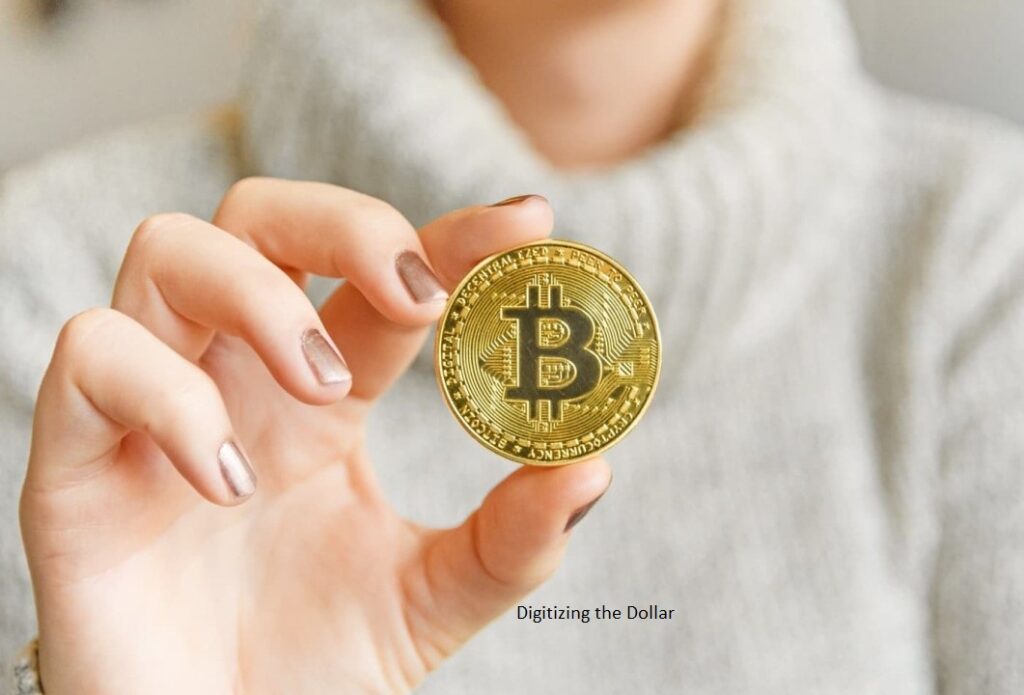Introduction
The idea of digital dollars has arisen as a game-changer in an age where cellphones have become extensions of our elves and online transactions are the norm. The federal government-backed digital version of the dollar is referred to as the “digital dollar.” Its purpose is to make financial transactions safe, quick, and convenient while also lowering our dependency on actual cash.
Understanding Digital Currency
A type of money known as “digital currency” only exists electronically. Digital currency has no physical presence, in contrast to traditional currency like coins or banknotes. It is handled and stored digitally.
The Evolution of Money
Barter systems, actual cash, and now digital currency all represent significant advancements in the history of money. The development of money demonstrates our ongoing search for practical and efficient mechanisms of exchange.
Convenience and Accessibility
The ease it gives is one of the main reasons for digitizing the dollar. The necessity to carry physical cash is gone thanks to the accessibility and flexibility of digital currency.
Reducing Transaction Costs
Transaction expenses could be drastically reduced with the use of digital currency. The fees associated with traditional banking services can be reduced using digital money.
Combating Counterfeiting
With tangible currency, counterfeiting is a recurring issue. Modern Digitizing the Dollar security mechanisms can be included into digital currency to almost eliminate counterfeiting.
Definition and Purpose
The national currency of a nation is represented digitally via Central Bank Digital Currencies (CBDCs). Because the central bank issues and controls them, there is more stability and control.
Advantages of CBDCs
Central Bank Digital Currencies (CBDCs) are digital representations of a country’s currency. There is more stability and control because the central bank issues and regulates them.
Security and Transparency
Blockchain technology is essential for maintaining the security and accountability of digital currency. An immutable ledger is used to record transactions, which lowers fraud and increases confidence.
Decentralization vs. Centralization
Decentralization vs. centralization is still a hot topic in the evolution of digital money. For success, finding the appropriate balance is crucial.
Countries Pioneering Digital Currencies
The development and use of digital currencies Digitizing the Dollar have been spearheaded by a number of nations, paving the way for a global move toward digital money.
Cross-Border Transactions
Cross-border transactions might be sped up and made simpler with the use of digital currencies, which would also cut out middlemen and lower prices.
Privacy and Surveillance
Since digital transactions Digitizing the Dollar may be extensively monitored by authorities, the digitization of currency creates privacy and surveillance problems.
Cybersecurity Risks
There are risks in the digital world. Threats to cybersecurity must be dealt with in order to guarantee the security of digital dollar transactions.
Monetary Policy Implications
The adoption of digital currencies may have major effects on monetary policy, necessitating careful thought and adjustment.
Government Oversight
In order to guarantee the stability and integrity of digital currency and safeguard consumers and the economy, government oversight and regulation are essential.
Consumer Protection with Digitizing the Dollar
Consumer protection should be given first priority in a strong regulatory framework, ensuring trust and confidence in digital currency.
Financial Inclusion
Through the provision of financial services to marginalized groups, digital currencies have the potential to advance financial inclusion on a global scale.
Shaping Economic Landscapes
The widespread use Digitizing the Dollar of digital currency could alter economic environments, affecting sectors of the economy and business models.
Banking Industry Transformation
The rise of digital currencies requires traditional institutions to change or risk being rendered obsolete in the rapidly changing financial environment.
Customer Experience Enhancement
With seamless and convenient banking services, digital money can improve the client experience.
Cryptocurrencies vs. Digital Dollars
Key variations
Cryptocurrencies and digital dollars are both digital forms of money, but there are important distinctions between them in terms of governance, stability, and use cases.
Coexistence or Competition
Cryptocurrencies and digital dollars coexisting begs the question of whether they will work best together or compete with one another for domination.
Investment Opportunities
Investors have the chance to profit from the rise of digital dollars, but they also need to be aware of the hazards involved.
Risk Mitigation
Investors must have a Digitizing the Dollar thorough understanding of the dangers related to digital currency in order to make wise choices.
Conclusion
A significant step toward Digitizing the Dollar a cashless society is the digitization of the dollar. It has many benefits, but it also has drawbacks that call for regulation and careful thought. Digital currency has the potential to expand financial access while also enhancing security and efficiency.
FAQs
What is the digital dollar?
The digital dollar refers to the electronic representation of the United States currency, backed by the federal government.
How does digital currency differ from physical cash?
Digital currency exists only in electronic form, while physical cash is tangible. Digital currency can be used for online transactions, offering greater convenience.
What are the potential benefits of digital dollars?
Digital dollars offer benefits such as convenience, reduced transaction costs, and enhanced security compared to physical cash.


